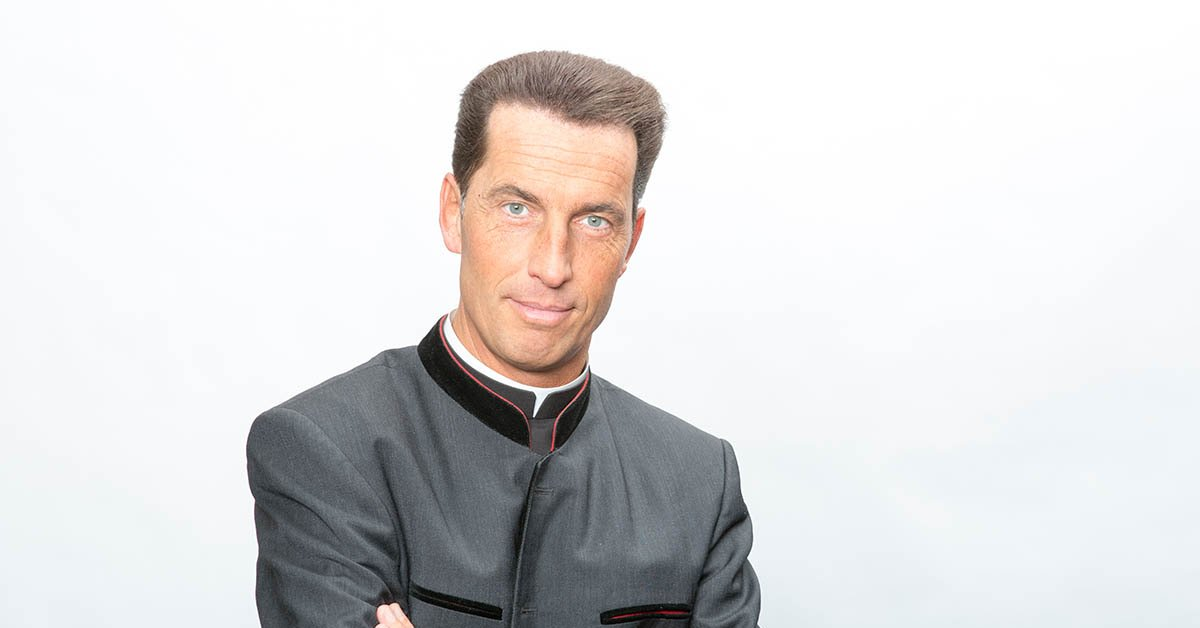Synodal Path rigged from beginning to end. Senior German cleric resigns
Too much "German special way"
Bonn's city deacon Wolfgang Picken resigns his mandate for the Synodal Path. He represents the Priests' Council of the Archdiocese of Cologne in the General Assembly of the Synodal Path and is a member of Forum 1 "Power and Separation of Powers".
"Reforms and changes are needed in the Catholic Church. However, I cannot support the lack of openness with which many debates are conducted in the Synodal Path and numerous reform proposals that too lightly abandon unity with the universal Church," he said in a statement.
Lack of debate culture and critical faculties
Picken had already criticised several times that the debates within the "Synodal Path" were not sufficiently open for controversial discussion. He had formulated written interventions and, together with other members of the Assembly, submitted a text for the forum on "Power and Separation of Powers" entitled "Authority and Responsibility", without these having been put up for discussion in the bodies of the Synodal Path.
"For long stretches, one had to get the impression that the objectives of the Synodal Path had already been set beforehand,"
said the Bonn city deacon. In addition, the topics had been dealt with under too much time pressure and rules for discussion had been developed for the Synodal Assembly, which neither did justice to the importance of the questions nor enabled an appropriate debate on the content. The political scientist with a doctorate had already withdrawn from active participation in the "Synodal Path" after these experiences. "The Synodal Path's lack of debate culture and critical faculties disappointed me and made participation impossible," said Picken.
Synodal Path harms important reform concerns
The Bonn city deacon also notes that even critical comments from outside were not constructively taken note of by the Synodal Path. Both the letter from Pope Francis at the beginning of the Synodal Path and the many critical statements from recognised theologians such as Cardinals Kasper and Schönborn or entire Bishops' Conferences of other countries had not been taken into account in the agenda of the Synodal Path.
Instead, the objections had been warded off with sometimes aggressive rhetoric and the own agenda had been pursued unflinchingly. Even the most recent Vatican intervention, written by three cardinals on behalf of the Pope, had been largely ignored. "This violates the basic principle of synodality. It consists of listening to each other and entering into a serious dialogue," Dr Picken said. This, he said, is not a demand that the Synodal Path can make of the Pope and the Vatican alone, but which the German reform process must first do justice to itself. On the other hand, disconnecting the Synodal Path from its critics and ultimately even from the Pope violates the rules of a good culture of discussion and endangers unity with the universal Church. "In the end, it is this unwavering stubbornness and ruthlessness with which the Synodal Path pursues its own German way that moves me to resign my mandate," the Bonn city deacon sums up. The Synodal Path leaves behind hardening and polarisation and causes disappointment and frustration because it has lost the measure with many of its demands. "With its dubious methodology, the Synodal Path has probably harmed many reform concerns that are significant for the Catholic Church worldwide," Picken sums up.
Synodal Path limits democracy and co-determination
The priest from Bonn also notes that there have been considerable deficits in the Synodal Path from the beginning with regard to participation and thematic openness. There is a two-tier system among the delegates. Dr. Picken already criticised at the first plenary assembly that anyone who was not a member of the Bishops' Conference or the Central Committee of German Catholics could not be elected to the Presidium of the Synodal Path or to the leadership of a forum.
(Cathcon: tyrannical rule of the Catholic Church by a cosy club of the pseudo-clerical elite)
This would considerably limit half of all delegates in their possibilities of co-determination and influence on the course of the reform process. Through structural and content-related stipulations in the statutes, the sovereignty of the Bishops' Conference and ZdK over the Synodal Path was first ensured, instead of engaging in truly democratic structures and open processes in the reform process. "It is implausible to demand democracy and co-determination in the Church when it is deliberately and intensively restricted within the Synodal Path," said the political scientist and theologian from Bonn. The Synodal Path had completely failed to integrate critical voices and to consider possible minorities. This also violates the idea of synodality and has provoked polarisation from the beginning.
Cathcon: Father Picken has similarly been critical about the lack of transparency in the handling of abuse by Cardinal Woelki.
Synodal Path
The term "synodal path" refers to the Greek word synod. In ecclesiastical usage, synod refers to an assembly of bishops or of clergy and laity.
In their reform dialogue on the Synodal Way, the German Catholic bishops and the Central Committee of German Catholics (ZdK) want to discuss the future of church life in Germany. One goal is to regain trust lost after the abuse scandal
Update
Sadly Father Picken passed away in 2024. Of your charity, pray for the repose of his soul.










.jpeg)

Comments